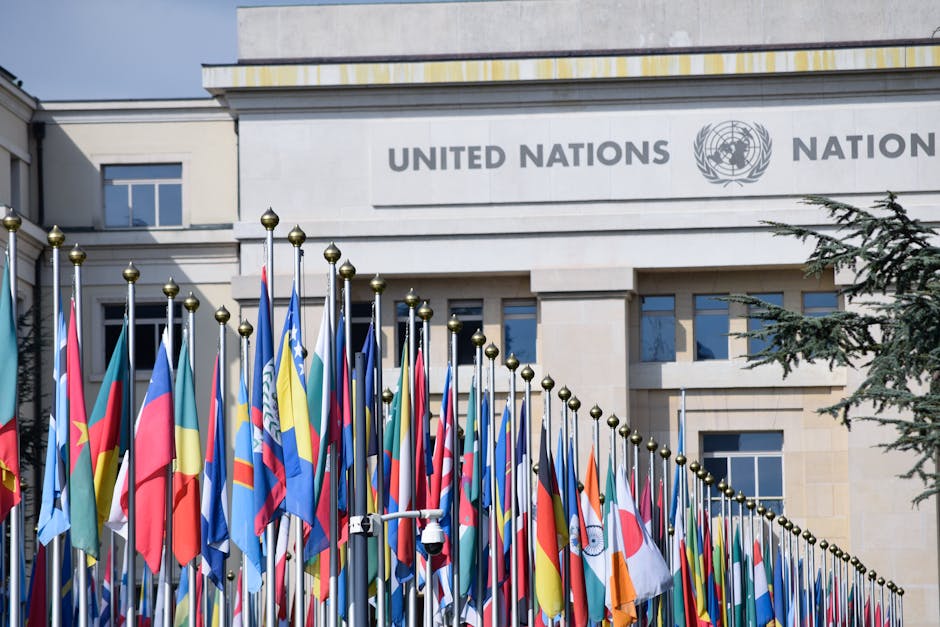The world faces a complex tapestry of challenges, from climate change to pandemics, economic instability, and armed conflicts. These issues transcend national borders, requiring a concerted global effort to address them effectively. Can international cooperation, the collaborative engagement of nations, truly provide a solution to these interconnected problems?
A critical examination reveals that while international cooperation is not a panacea, it is a crucial tool in navigating global complexities. Its efficacy depends not only on the will to cooperate but also on the structures, mechanisms, and shared values that underpin such endeavours.
Examining the Historical Landscape
History offers both encouraging and discouraging examples of international cooperation. The post-World War II period witnessed the creation of institutions like the United Nations, a landmark achievement aimed at fostering peace and cooperation among nations. However, the effectiveness of these bodies has been uneven. Successes, like the reduction of global poverty through various international programs, stand alongside failures, such as the inability to prevent or resolve numerous conflicts effectively.
This mixed record highlights the fundamental challenges inherent in international cooperation. States often prioritize national interests, making consensus-building difficult. Differing political ideologies, economic structures, and cultural norms can create significant obstacles to common action. Powerful nations may exert undue influence, while smaller nations may lack the resources or leverage to effectively participate.
The Multifaceted Nature of Global Issues
The very nature of global challenges necessitates a multifaceted approach. Climate change, for instance, demands collaboration on emissions reductions, technology transfer, and financial aid for developing countries. Pandemics, likewise, require coordinated efforts in research, vaccine development, and global health infrastructure. Economic crises necessitate international financial cooperation and coordination to stabilize markets and prevent widespread suffering.
Understanding the nuances of each issue is critical. Climate change is not merely an environmental problem; it has profound implications for geopolitical stability, migration patterns, and economic development. Pandemics highlight the interconnectedness of human populations and the urgent need for global public health frameworks. Economic crises ripple across borders, impacting trade, investment, and employment worldwide.
The Crucial Role of Institutions
International organizations, like the UN, the World Trade Organization, and the World Bank, play a pivotal role in fostering cooperation and providing platforms for dialogue and action. These institutions provide frameworks for agreements, facilitate the exchange of information, and can leverage financial and technical assistance to support cooperative initiatives.
However, the effectiveness of these institutions is often limited by their mandates, funding, and the willingness of member states to adhere to agreements. Reform and strengthening of these structures are essential for improved effectiveness. Greater transparency, accountability, and representation of diverse interests are paramount for legitimacy and broader acceptance.
The Political Landscape and Power Dynamics
International relations are profoundly shaped by power dynamics and political agendas. The influence of powerful states, both economically and militarily, can significantly impact the direction of international cooperation. The interests of these states often influence the focus and outcomes of collaborative efforts, possibly pushing aside the concerns of other nations. This potential for bias and inequitable representation must be acknowledged and actively mitigated.
Furthermore, varying political ideologies and approaches to governance can create significant obstacles to common goals. Reaching consensus on shared values, particularly in areas like human rights and democratic principles, is often a significant challenge.
Beyond the State Level: The Role of Civil Society
Beyond state-level interactions, the involvement of civil society organizations, non-governmental organizations (NGOs), and individuals is crucial. Their diverse perspectives, expertise, and grassroots knowledge often provide vital insights and impetus for international cooperation. Their engagement can fill gaps in state-centric approaches, fostering greater participation and accountability.
Harnessing Technology and Innovation
The rapid pace of technological advancement offers unprecedented opportunities for international cooperation. Digital platforms can facilitate communication, knowledge sharing, and collaboration across borders. Innovations in areas like renewable energy, biotechnology, and artificial intelligence can fuel collective solutions to complex challenges.
Conclusion: Towards a More Cooperative Future
In conclusion, international cooperation, while not a perfect solution to every global issue, remains a critical component of addressing multifaceted challenges. Its success hinges on several interconnected factors: the willingness of nations to transcend national interests, the reform and strengthening of international institutions, a nuanced understanding of power dynamics, and a collaborative effort involving civil society, technology, and innovation.
The path towards a more cooperative future requires a constant reassessment of existing structures, an open dialogue concerning differing perspectives, and a steadfast commitment to shared values. Ultimately, the future depends on our collective willingness to recognize our intertwined destinies and work together to build a sustainable and equitable world for all.






